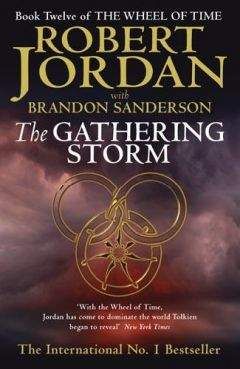Илья Франк - Английский язык с Р. Киплингом. Истории просто так

Помощь проекту
Английский язык с Р. Киплингом. Истории просто так читать книгу онлайн
‘Tell him to come out (вели ему выйти),’ said the ‘Stute Fish (сказала Хитренькая Рыбка).
So the Whale called down his own throat to the shipwrecked Mariner (и Кит крикнул в глубину своей глотки попавшему в кораблекрушение Моряку), ‘Come out and behave yourself (выходи и веди себя прилично; to behave oneself — вести себя хорошо). I’ve got the hiccoughs (у меня /от тебя/ икота).’
hiccough ['hIkAp], throat [Trqut], behave [bI'heIv]
So he said to the ‘Stute Fish, ‘This man is very nubbly, and besides he is making me hiccough. What shall I do?’
‘Tell him to come out,’ said the ‘Stute Fish.
So the Whale called down his own throat to the shipwrecked Mariner, ‘Come out and behave yourself. I’ve got the hiccoughs.’
‘Nay, nay!’ said the Mariner (нет, нет! — сказал Моряк). ‘Not so, but far otherwise (не так, а совсем иначе). Take me to my natal-shore and the white-cliffs-of-Albion (отвези меня к моему родному берегу и белым утесам Альбиона), and I’ll think about it (и я подумаю об этом).’ And he began to dance more than ever (и он начал плясать = заплясал еще больше, чем когда-либо; to begin — начинать).
‘You had better take him home (тебе лучше отвезти его домой),’ said the ‘Stute Fish to the Whale (сказала Хитренькая Рыбка Киту). ‘I ought to have warned you (мне следовало предупредить тебя) that he is a man of infinite-resource-and-sagacity (что он человек безграничной находчивости и сообразительности).’
otherwise ['ADqwaIz], natal ['neItql], ought [Lt]
‘Nay, nay!’ said the Mariner. ‘Not so, but far otherwise. Take me to my natal-shore and the white-cliffs-of-Albion, and I’ll think about it.’ And he began to dance more than ever.
‘You had better take him home,’ said the ‘Stute Fish to the Whale. ‘I ought to have warned you that he is a man of infinite-resource-and-sagacity.’
So the Whale swam and swam and swam (и Кит поплыл, и плыл, и плыл), with both flippers and his tail (/работая/ обоими плавниками и /своим/ хвостом), as hard as he could for the hiccoughs (изо всех сил, насколько ему позволяла икота: «так упорно, как он мог из-за икоты»); and at last he saw the Mariner’s natal-shore and the white-cliffs-of-Albion (и наконец он увидел родной берег Моряка и белые утесы Альбиона), and he rushed half-way up the beach (и он выбросился наполовину на пляж), and opened his mouth wide and wide and wide (и распахнул свой рот широко-широко-широко), and said (и сказал), ‘Change here for Winchester, Ashuelot, Nashua, Keene, and stations on the Fitchburg Road (/здесь/ пересадка на Винчестер, Эшуэло(т), Нэшуа, Кин и станции по Фитчбургской Дороги = по Дороге на Фитчбург);’ and just as he said ‘Fitch’ (и как раз когда он сказал Фитч) the Mariner walked out of his mouth (Моряк вышел из его рта = у него изо рта). But while the Whale had been swimming (но пока Кит плыл), the Mariner, who was indeed a person of infinite-resource-and-sagacity (Моряк, который в самом деле был человеком безграничной находчивости и сообразительности), had taken his jack-knife (взял свой нож) and cut up the raft into a little square grating all running criss-cross (и разрубил плот на маленькую квадратную решетку = и разрубив плот, сделал из него мелкую квадратную решетку, всю пересекавшуюся = где все дощечки пересекались крест-накрест), and he had tied it firm with his suspenders (и он связал их крепко своими помочами) (now you know why you were not to forget the suspenders (теперь вы знаете, почему вам нельзя было забывать о помочах)!), and he dragged that grating good and tight into the Whale’s throat (и он затянул эту решетку хорошенько и плотно в глотку Кита), and there it stuck (и она там застряла; to stick)! Then he recited the following Sloka (потом он прочел вслух следующую Слоку[11]), which, as you have not heard it (которую, так как вы не слышали ее), I will now proceed to relate (я сейчас расскажу; to proceed — приступить (к), приняться (за)) —
By means of a grating (посредством решетки) I have stopped your ating[12] (я прекратил твое обжорство[13]).
So the Whale swam and swam and swam, with both flippers and his tail, as hard as he could for the hiccoughs; and at last he saw the Mariner’s natal-shore and the white-cliffs-of-Albion, and he rushed half-way up the beach, and opened his mouth wide and wide and wide, and said, ‘Change here for Winchester, Ashuelot, Nashua, Keene, and stations on the Fitchburg Road;’ and just as he said ‘Fitch’ the Mariner walked out of his mouth. But while the Whale had been swimming, the Mariner, who was indeed a person of infinite-resource-and-sagacity, had taken his jack-knife and cut up the raft into a little square grating all running criss-cross, and he had tied it firm with his suspenders (now you know why you were not to forget the suspenders!), and he dragged that grating good and tight into the Whale’s throat, and there it stuck! Then he recited the following Sloka, which, as you have not heard it, I will now proceed to relate —
By means of a grating I have stopped your ating.
For the Mariner he was also an Hi-ber-ni-an (что касается Моряка, он был еще и Хирландец; Hibernian — ирландец, ирландка). And he stepped out on the shingle (и он вышел на берег, покрытый галькой), and went home to his mother (и пошел домой к своей маме), who had given him leave to trail his toes in the water (которая дала ему разрешение болтать ногами в воде); and he married and lived happily ever afterward (и он женился и жил счастливо всегда впоследствии = с тех пор). So did the Whale (и Кит тоже). But from that day on (но с того дня и впредь), the grating in his throat (решетка в его глотке), which he could neither cough up nor swallow down (которую он не мог ни выкашлять, ни проглотить), prevented him eating anything (мешала ему есть что-либо) except very, very small fish (кроме очень-очень мелкой рыбешки); and that is the reason why whales nowadays never eat men or boys or little girls (вот причина того, что = вот почему киты сейчас никогда /не/ едят мужчин = /взрослых/ людей или мальчиков или маленьких девочек).
Hibernian [haI'bWnIqn], water ['wLtq], cough [kOf]
For the Mariner he was also an Hi-ber-ni-an. And he stepped out on the shingle, and went home to his mother, who had given him leave to trail his toes in the water; and he married and lived happily ever afterward. So did the Whale. But from that day on, the grating in his throat, which he could neither cough up nor swallow down, prevented him eating anything except very, very small fish; and that is the reason why whales nowadays never eat men or boys or little girls.
The small ‘Stute Fish went (маленькая Хитренькая Рыбка ушла = уплыла) and hid himself in the mud under the Door-sills of the Equator (и спряталась в иле под Порогом Экватора; to hide oneself — прятаться). He was afraid (он = она боялась) that the Whale might be angry with him (что Кит может на нее рассердиться; to be angry with — сердиться на).
The Sailor took the jack-knife home (Моряк взял складной нож домой). He was wearing the blue canvas breeches (он носил синие холщовые штаны = он был в синих холщовых штанах) when he walked out on the shingle (когда он вышел на берег, покрытый галькой). The suspenders were left behind, you see, to tie the grating with (помочи остались = ушли, видите ли, на то, чтобы связать = на перевязку решетки; to leave behind — оставлять позади / после себя); and that is the end of that tale (и это конец этой сказки).
equator [I'kweItq], afraid [q'freId], might [maIt]
The small ‘Stute Fish went and hid himself in the mud under the Door-sills of the Equator. He was afraid that the Whale might be angry with him.
The Sailor took the jack-knife home. He was wearing the blue canvas breeches when he walked out on the shingle. The suspenders were left behind, you see, to tie the grating with; and that is the end of that tale.
WHEN the cabin port-holes are dark and green (когда иллюминаторы каюты темные и зеленые) Because of the seas outside (из-за моря снаружи); When the ship goes wop (когда корабль дает крен) (with a wiggle between (с качкой в промежутке)) And the steward falls into the soup-tureen (и стюард падает в супницу), And the trunks begin to slide (а чемоданы начинают скользить); When Nursey lies on the floor in a heap (когда Нянечка лежит на полу без сознания; in a heap — в отрубе, в отключке; heap — груда, куча, масса), And Mummy tells you to let her sleep (а Мамочка велит тебе дать ей поспать), And you aren’t waked or washed or dressed (а тебя не будят, не моют и не одевают), Why, then you will know (ну, тогда ты будешь знать) (if you haven’t guessed (если еще не догадалась[14])) You’re ‘Fifty North and Forty West (ты находишься на Пятидесятом /градусе/ Северной /широты/ и Сороковом /градусе/ Западной /долготы/)!’
steward ['stjuqd], tureen [tju'rJn], floor [flL]
WHEN the cabin port-holes are dark and green Because of the seas outside; When the ship goes wop (with a wiggle between) And the steward falls into the soup-tureen, And the trunks begin to slide; When Nursey lies on the floor in a heap, And Mummy tells you to let her sleep, And you aren’t waked or washed or dressed, Why, then you will know (if you haven’t guessed) You’re ‘Fifty North and Forty West!’
Когда темно у нас в каюте[15],
И волны хлещутся о борт.
Когда вода кругом на юте,
Когда вдали ближайший порт.
Когда корабль в дикой тряске,
Когда дает он сильный крен.
Когда все вещи скачут в пляске,
И шторма не избегнуть плен.
Официант, облитый супом,
С подносом мчится в ресторан.
Лежит в каюте няня трупом,
И «не мешать» приказ мне дан.
Когда меня не умывают,
Когда меня не одевают,
Тогда догадываюсь я:
В какие я попал[16] края.
В воде по самые борта
Где наше судно знаешь ты?
Сороковая долгота,
Пятидесятой широты.
THIS is the picture of the Whale swallowing the Mariner with his infinite-resource-and-sagacity (это изображение Кита, глотающего Моряка с его безграничной находчивостью и сообразительностью), and the raft and the jack-knife and his suspenders (и плотом, и складным ножом, и его помочами), which you must not forget (которые ты не должен забывать). The buttony-things are the Mariner’s suspenders (штуковины с пуговицами — это помочи Моряка), and you can see the knife close by them (и ты можешь увидеть рядом с ними нож). He is sitting on the raft but it has tilted up sideways (он сидит на плоту, но он наклонился в сторону), so you don’t see much of it (поэтому тебе видно немного его = небольшая часть его). The whity thing by the Mariner’s left hand is a piece of wood (беловатая штуковина у левой руки Моряка — это кусок дерева = палка) that he was trying to row the raft with (которой он пытался грести) when the Whale came along (когда появился Кит). The piece of wood is called the jaws-of-a-gaff (палка называется багор). The Mariner left it outside when he went in (Моряк оставил его снаружи, когда /он/ попал вовнутрь /Кита/). The Whale’s name was Smiler (Кита звали Улыбчивый), and the Mariner was called Mr. Henry Albert Bivvens, A.B. (а Моряка звали Мистер Генри Альберт Биввенс, А.Б.). The little ‘Stute Fish is hiding under the Whale’s tummy (маленькая Хитренькая Рыбка прячется под животиком /у/ Кита; tummy — пузо, животик), or else I would have drawn him (иначе я нарисовал бы его = ее; to draw — рисовать). The reason that the sea looks so ooshy-skooshy is (причина того, что море выглядит таким бурновастеньким, заключается в том) because the Whale is sucking it all into his mouth (потому что = что Кит втягивает его все в /свой/ рот; to suck in — всасывать) so as to suck in Mr. Henry Albert Bivvens and the raft and the jack-knife and the suspenders (чтобы всосать Мистера Генри Альберта Биввенса и плот, и складной нож, и помочи). You must never forget the suspenders (вы никогда /не/ должны забывать о помочах).





















